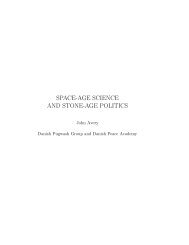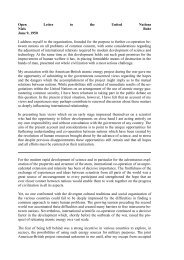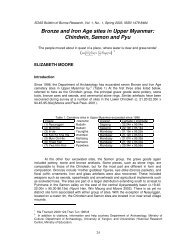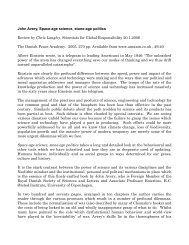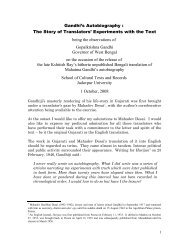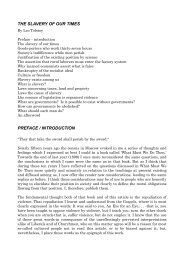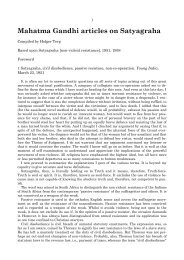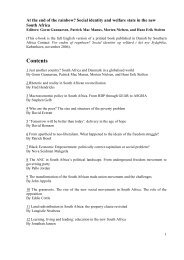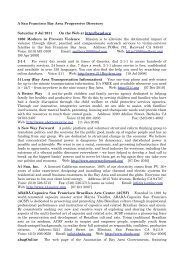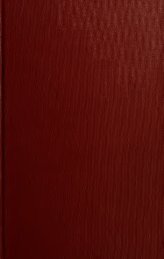Untitled
Untitled
Untitled
You also want an ePaper? Increase the reach of your titles
YUMPU automatically turns print PDFs into web optimized ePapers that Google loves.
U. S. AND EXPANSION OF LAW BETWEEN NATIONS 9<br />
"It is the right of every nation to prohibit acts of sovereignty<br />
from being exercised by any other within its limits, and the duty of<br />
a neutral nation to prohibit such as would injure one of the warring<br />
that the granting military commissions, within the United<br />
powers ;<br />
States, by any other authority than their own, is an infringement on<br />
their sovereignty, and particularly so when granted to their own<br />
citizens, to lead them to commit acts contrary to the duties they owe<br />
their own country; that the departure of vessels, thus illegally<br />
will be but an<br />
equipped, from the ports of the United States,<br />
acknowledgment of respect, analogous to the breach of it, while it<br />
is necessary on their part, as an evidence of their faithful neutral-<br />
ity."<br />
Later, on August 16th, 1793, Jefferson<br />
wrote to the Amer-<br />
ican Minister at Paris, Gouverneur Morris, further in support<br />
of the right and duty of the United States to maintain its neu-<br />
trality:<br />
"The right of raising troops, being one of the rights of sovereignty,<br />
and consequently appertaining exclusively to the nation it-<br />
self, no foreign power or person can levy men within its territory,<br />
without its consent. . . . That if the United States have a right<br />
to refuse the permission to arm vessels and raise men within their<br />
ports and territories, they are bound by the laws of neutrality to<br />
exercise that right, and to prohibit such armaments and enlistment."<br />
It was soon found, however, by practical experience that<br />
the United States of America could not, under the common law<br />
as it then existed in America, effectively prevent<br />
their citizens<br />
from taking an active part in the war and thereby endangering<br />
the neutrality of the country. Gideon Henfield, an American<br />
citizen, who had taken service on a French privateer, came<br />
sailing up the Delaware in 1793 to Philadelphia, in charge as<br />
prize master of a British vessel which had been captured by the<br />
privateer. For thus disregarding the neutrality proclamation<br />
of the President, he was indicted at common law, in the fed-<br />
eral court. Although Justice Wilson in his charge to the jury,<br />
urged upon them that the defendant should do nothing that<br />
might harm his country, that under the Constitution the treaties<br />
of the United States with foreign powers were part of the law<br />
of the land, and that the United States had entered into a treaty



